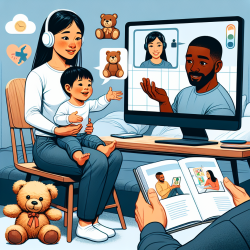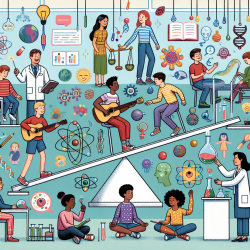Childhood bereavement is a challenging experience that can have lasting effects on a child's cognitive development and academic achievement. Recent research from the Generation R Cohort Study sheds light on these effects and offers insights for practitioners working with bereaved children. This blog post will explore the study's findings and discuss how practitioners can use this information to improve their skills and support bereaved children effectively.
The Generation R Cohort Study: An Overview
The Generation R Cohort Study is a population-based birth cohort study conducted in Rotterdam, The Netherlands. It aims to investigate various aspects of child and maternal health, including the impact of childhood bereavement on cognitive development and academic achievement. The study involved nearly 10,000 pregnant mothers recruited between 2002 and 2006, with data collected on their children's cognitive function and academic performance at ages 10 and 13.
Key Findings from the Study
The study found that childhood bereavement was associated with a lower full-scale IQ at age 13, primarily driven by lower matrix reasoning scores. Interestingly, there were no significant differences in academic achievement or other subtests of neurocognitive function between bereaved and non-bereaved children. However, secondary analyses revealed that the emotional influence of the loss reported by caregivers played a crucial role in the association between bereavement and cognitive outcomes.
- Lower Full-Scale IQ: Bereaved children had an average of 1.12-point lower full-scale IQ compared to their non-bereaved peers.
- Matrix Reasoning Scores: The lower IQ was mainly attributed to reduced matrix reasoning scores.
- No Significant Differences in Academic Achievement: The study did not find significant differences in academic performance between bereaved and non-bereaved children.
- Emotional Influence Matters: The impact of bereavement on cognitive outcomes was more pronounced among children whose caregivers reported a significant emotional influence of the loss.
Implications for Practitioners
The findings from this study offer valuable insights for practitioners working with bereaved children. Here are some ways practitioners can use this information to improve their skills and support these children effectively:
- Understand the Emotional Impact: Recognize that the emotional influence of bereavement plays a crucial role in its impact on cognitive development. Practitioners should assess and address the emotional needs of bereaved children to mitigate potential negative effects.
- Focus on Cognitive Development: While academic performance may not be significantly affected, practitioners should pay attention to cognitive development areas such as fluid reasoning. Providing targeted interventions can help support cognitive growth in these areas.
- Provide Holistic Support: Consider the child's overall well-being, including mental health and social support systems. A holistic approach can help address the multifaceted challenges faced by bereaved children.
- Encourage Further Research: The study highlights the need for further research into the mechanisms underlying the relationship between bereavement and cognitive development. Practitioners are encouraged to stay informed about new research findings and incorporate them into their practice.
The Path Forward: Encouraging Further Research
The Generation R Cohort Study provides a foundation for understanding the impact of childhood bereavement on cognitive development. However, there is still much to learn about the mechanisms driving these associations and how best to support affected children. Practitioners should continue to engage with ongoing research efforts and advocate for studies that explore these complex relationships further.
To read the original research paper, please follow this link: Neurocognition and academic achievement among bereaved children in the Generation R Cohort.
By staying informed about the latest research findings and implementing evidence-based practices, practitioners can make a meaningful difference in the lives of bereaved children, helping them achieve their full potential despite challenging circumstances.










